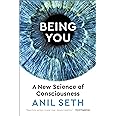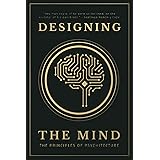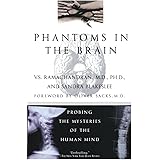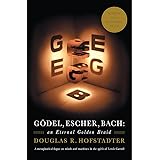
Enjoy fast, free delivery, exclusive deals, and award-winning movies & TV shows with Prime
Try Prime
and start saving today with fast, free delivery
Amazon Prime includes:
Fast, FREE Delivery is available to Prime members. To join, select "Try Amazon Prime and start saving today with Fast, FREE Delivery" below the Add to Cart button.
Amazon Prime members enjoy:- Cardmembers earn 5% Back at Amazon.com with a Prime Credit Card.
- Unlimited Free Two-Day Delivery
- Streaming of thousands of movies and TV shows with limited ads on Prime Video.
- A Kindle book to borrow for free each month - with no due dates
- Listen to over 2 million songs and hundreds of playlists
- Unlimited photo storage with anywhere access
Important: Your credit card will NOT be charged when you start your free trial or if you cancel during the trial period. If you're happy with Amazon Prime, do nothing. At the end of the free trial, your membership will automatically upgrade to a monthly membership.
Buy new:
$50.00$50.00
Ships from: Amazon.com Sold by: Amazon.com
Save with Used - Good
$39.32$39.32
Ships from: Amazon Sold by: Wisconsinman

Download the free Kindle app and start reading Kindle books instantly on your smartphone, tablet, or computer - no Kindle device required.
Read instantly on your browser with Kindle for Web.
Using your mobile phone camera - scan the code below and download the Kindle app.

OK
Being No One: The Self-Model Theory of Subjectivity (A Bradford Book) Paperback – August 20, 2004
Purchase options and add-ons
- Print length714 pages
- LanguageEnglish
- PublisherBradford Books
- Publication dateAugust 20, 2004
- Dimensions7 x 1.17 x 9 inches
- ISBN-100262633086
- ISBN-13978-0262633086
Frequently bought together

Similar items that may deliver to you quickly
Editorial Reviews
Review
Metzinger's interdisciplinary approach opens a new path toward a scientific theory of consciousness and self-consciousness.
—Franz Mechsner and Albert Newen , Science—This book is a 'must' for anyone who is interested in empirical studies related to first-person issues or subjectivity.
—Kai Vogeley, TRENDS in Cognitive Sciences—About the Author
Product details
- Publisher : Bradford Books; Reprint edition (August 20, 2004)
- Language : English
- Paperback : 714 pages
- ISBN-10 : 0262633086
- ISBN-13 : 978-0262633086
- Item Weight : 2.19 pounds
- Dimensions : 7 x 1.17 x 9 inches
- Best Sellers Rank: #383,143 in Books (See Top 100 in Books)
- #157 in Philosophy Criticism (Books)
- #284 in Neuroscience (Books)
- #10,182 in Psychology & Counseling
- Customer Reviews:
About the author

Thomas Metzinger (*1958 in Frankfurt am Main, Germany) is currently Professor of Theoretical Philosophy at the Johannes Gutenberg-Universität Mainz and an Adjunct Fellow at the Frankfurt Institute for Advanced Study. From 2014-2019 he is exempted from all teaching and administrative duties as a Fellow of the Gutenberg Research College. See http://www.philosophie.uni-mainz.de/metzinger/ for free downloads and more.
In 2008 he received a one-year Fellowship at the Wissenschaftskolleg zu Berlin (Berlin Institute for Advanced Study), is past president of the German Cognitive Science Society and was president of the Association for the Scientific Study of Consciousness from 2009 to 2010.
His focus of research lies in analytical philosophy of mind, philosophy of science and philosophical aspects of the neuro- and cognitive sciences as well as connections between ethics, philosophy of mind and anthropology.
In the English language, he has edited two collections on consciousness ("Conscious Experience", Paderborn: mentis & Thorverton, UK: Imprint Academic, 1995; "Neural Correlates of Consciousness", Cambridge, MA: MIT Press, 2000) and one major scientific monograph developing a comprehensive, interdisciplinary theory about consciousness, the phenomenal self, and the first-person perspective ("Being No One - The Self-Model Theory of Subjectivity", Cambridge, MA: MIT Press, 2003). A completely open-access collection of original, peer-reviewed material presented by 92 authors, many of whom are leading philosophers, can be found at open-mind.net.
In 2009, he published a popular book, which addresses a wider audience and also discusses the ethical, cultural and social consequences of consciousness research ("The Ego Tunnel - The Science of the Mind and the Myth of the Self", New York: Basic Books). A much extended version of this book appeared in German in 2014, and has been translated into a number of other languages.
There are a number of videos on YouTube, German as well as English. More information at Wikipedia: http://en.wikipedia.org/wiki/Thomas_Metzinger and http://www.blogs.uni-mainz.de/fb05philosophie/arbeitsbereiche/theoretische/thmetzinger/multimedia/
Customer reviews
Customer Reviews, including Product Star Ratings help customers to learn more about the product and decide whether it is the right product for them.
To calculate the overall star rating and percentage breakdown by star, we don’t use a simple average. Instead, our system considers things like how recent a review is and if the reviewer bought the item on Amazon. It also analyzed reviews to verify trustworthiness.
Learn more how customers reviews work on Amazon-
Top reviews
Top reviews from the United States
There was a problem filtering reviews right now. Please try again later.
Metzinger wanted to show that the self can be explained in subpersonal terms, using representational analysis. He quickly noticed that since Selves are usually consicous entities, that he would first have to do this for consciousness. Imagine that. Having to explain consicousness to try to explain the self. And so, the book could be seen as divided in two. First, a theory of consicousness, and second, a theory of the self. I am by far more impressed with the former, although undoubtedly the latter is extremely interesting as well.
Before proposing a number of theorethical entities supposed to play the explanatory role, Metzinger carefully analyses the conceptual tools necessary to understand the problem, and formulate solutions. Thus, he analyses the concepts of representation, mental model, phenomenal presentation, etc. His account is also almost completely positive; that is, he almost does not stop to defend his ideas, or to analyse other philosphical theories. He focuses on arguing step-by step for a conceptual edifice that may lead to the explanation of phenomenal states in terms of non-phenomenal objective relations. This part of the book alone seems to me to be one of the strongest formulations of a representational theory of mental states.
Metzinger, then, is able to answer the question of what makes a mental state a conscious state. He argues that mental states have representational, and these states can have phenomenal content if the representational states meet some constraints. Consciously experienced content is content of an active phenomenal model, and phenomenal contents are all representational. The various constraints are the conditions that the representational content must meet in order for it to be a phenomenal content. Examples of these constraints are globality (integration into a global whole), activation in a window of presence, transparency.
The constraints are what makes these ideas powerful. Metzinger analyses the constraints in representational, phenomenological, information-processing, functional and neural-implementation terms. He gives what could be seen as necesary and sufficient conditions for a mental state to be a consicous state. He presents a theory of consicousness. And a very sensible, conceptually simple, naturalistic, and powerful one.
After doing this, he shows how his analysis can acomodate some abnormal phenomenons like blindsight, agnosia, and neglect. He then does much of the same last steps with the problem of the self. He defines concepts like subjectivity, self-hood, self-models. Then he proposes theorethical entities like the phenomenal self model, or the phenomenal model of the intentianality relation, to try to show how the conscious self might emerge. Here too metzinger argues that self content must meet some constraints to be considered phenomenal self content. He also tests his constructs against cases like anosognosia, multiple persoality, lucid dreams.
In sum, Metzinger deals with everything from mental representation, to content, qualia, subjectivity, intentionality, self, and does it in carefully ordered and convincing ways. Metzinger is a philosopher, and the theory is mostly philsophical. But few philsophers include such careful empirical and neurobiological observations. Few philosophers have such knowledge of the extensive literature. Few are as convinced of the central role that scientific objective theorethizing must play.
I must repeat that it is in no way evident that consciousness is explained in Metzingers book. But if there is a book that will set the conceptual framework that leads to such an explanation, it is this one. It is virtually imposible to explain his ideas concisely, and to understand them one has to follow his discussion completely. Therefore, I can do not much but to recomend that anyone interested in consicousness read this book. The book is quite technical and it is fairly long, however I believe that this should not stop the lay reader. The book is in my opinion simply too important. I have reviewed close to 100 books now, most of them on consicousness. I have said on numerous times that such or such a book is a must read. This one is the one I think more closely matches that description.
Being No One (and note the specific grammar: it's not 'Being No-one) is more than worth the work. Highly recommended for anyone interested in how consciousness relates to brain activity.











